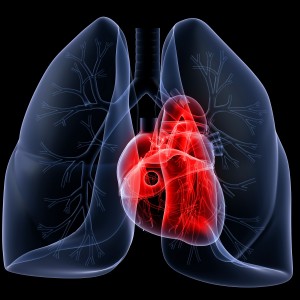 Actelion Ltd recently presented long-term results at the American College of Cardiology (ACC) Congress in San Diego, US from their pivotal selexipag (Uptravi®) Phase III GRIPHON trial. The company reported that, compared to placebo, selexipag significantly decreased the risk of a morbidity/mortality events related to pulmonary arterial hypertension (PAH) in 40% of test subjects.
Actelion Ltd recently presented long-term results at the American College of Cardiology (ACC) Congress in San Diego, US from their pivotal selexipag (Uptravi®) Phase III GRIPHON trial. The company reported that, compared to placebo, selexipag significantly decreased the risk of a morbidity/mortality events related to pulmonary arterial hypertension (PAH) in 40% of test subjects.
GRIPHON is a placebo controlled, double blind event-driven study that examined the effect of selexipag versus placebo in a total of 1,156 patients with a diagnosis of PAH. Patients were randomized 1:1 and received the treatment for up to 4.3 years with a median exposure of 63.1 weeks in the 582 patients under the placebo and 70.6 weeks in the 574 patients under selexipag.
At study entry, a total of 80% of the patients with PAH were either under endothelin receptor antagonist (ERA) alone (15%), under phosphodiesterase-5 inhibitor (PDE-5i) alone (32%), or under a combination of both an ERA and a PDE-5i (33%). A total of 47% of the patients were considered class I/II and 53% of the patients were considered class III/IV (according to the WHO functional Class).
The results revealed an even risk reduction in morbidity/mortality events across gender, age, the etiology of PAH, the baseline WHO Functional Class and regardless of background treatment involving patients receiving selexipag complementary of ERA and PDE-5i combined.
In the GRIPHON trial, treatment with selexipag began with 200 micrograms twice per day daily and was increased every week from 200 mcg up to 1600 mcg. At the maximum tolerated dosing, the benefit was consistent across the pre-specified low-, medium- and high-maintenance dose groups.
[adrotate group=”4″]
Results revealed an increase in the 6 minute walk distance (6MWD) at week 26 in patients under selexipag from 12 meters to 34 meters.
Selexipag had a similar tolerance to those observed in other treatments that target the prostacyclin pathway. Adverse events were more common in patients on selexipag compared to those receiving a placebo (>5%) and included diarrhea, nausea, vomiting, jaw pain, headache, pain in extremity flushing and myalgia.
Adverse events that led to treatment discontinuation occurred in 14% of patients under selexipag and in 7% of the patients under the placebo.
Dr. McLaughlin commented on the findings shared at ACC according to a recent news release: “As the first event-driven study with a treatment targeting the prostacyclin pathway, the results presented today have been eagerly awaited. The data suggest that, should selexipag be approved, many more of our PAH patients can be treated proactively with an oral therapy targeting this pathway, offering long-term outcome benefits. In addition, a key highlight is the benefit shown in patients already receiving treatment for PAH, including those already on combination therapy at baseline.”

